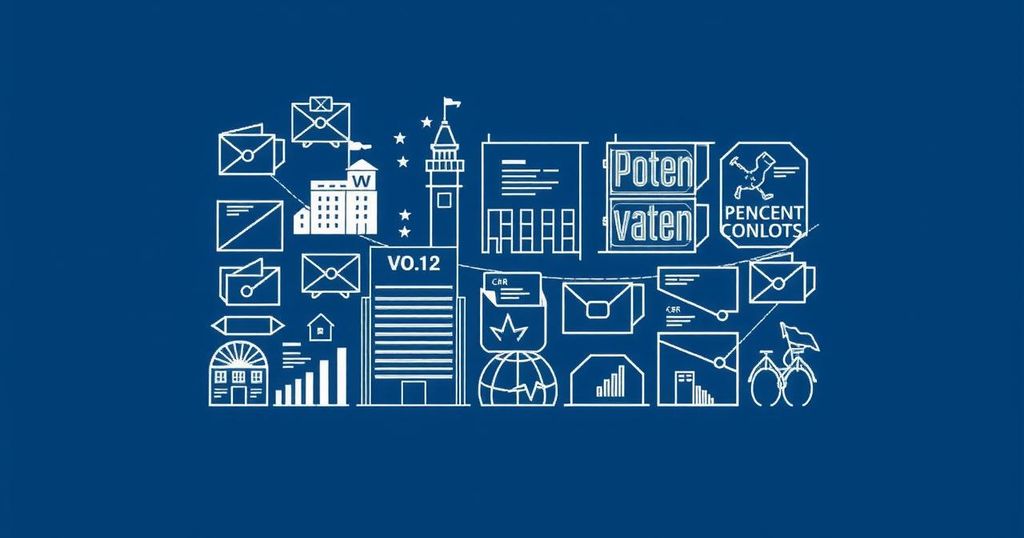Pennsylvania’s pre-canvassing rules impede timely processing of mail ballots, forcing election workers to manage both mail and in-person voting simultaneously on Election Day. Amid rising voter turnout and concerns over electoral fraud narratives, legislative efforts to reform these processes are stalled due to partisan disagreements surrounding voter ID requirements. Without compromise, officials predict challenges for the upcoming elections.
In the wake of the 2020 presidential election, the introduction of no-excuse mail voting in Pennsylvania faced significant challenges, particularly due to the pandemic’s impact on voter turnout and the state’s stringent pre-canvassing rules. These guidelines restrict election workers from processing mail ballots until 7 a.m. on Election Day, forcing them to handle a substantial influx of ballots simultaneously as they manage in-person voting. This situation has become a point of contention, especially as former President Donald Trump leveraged the slow return of results as evidence of electoral fraud, a narrative that election officials worry may resurface in future elections. Significantly, Pennsylvania remains among a minority of states that do not permit precanvassing — a term encompassing the preparation of mail-in ballots for counting. This includes signature verification, envelope opening, and ballot sorting, without actually counting the votes until the polls close. As reports indicate, the processing of mail ballots is labor-intensive, and election directors argue that allowing precanvassing earlier would enhance efficiency on Election Day. Despite gains in experience and additional funding aimed at improving election operations, legislative inaction continues to hamper efforts for reform. A persistent division exists in the state legislature, with proposals for advanced precanvassing timing caught in the crossfire of voter ID requirement disputes. Efforts by the Democratic-controlled House to pass legislation enabling precanvassing have yet to gain traction in the Republican-held Senate, which has insisted upon linking such reforms to voter ID measures.
The article explores the challenges faced by Pennsylvania’s election officials in processing mail ballots, particularly under rules prohibiting precanvassing prior to Election Day. In 2020, the introduction of mail voting, coupled with pandemic-induced surges in ballots, revealed the state’s limitations, raising concerns about electoral integrity and efficiency. The evolving legislative landscape regarding election reforms, especially regarding voter identification laws, adds complexity to the discourse surrounding pre-canvassing initiatives, making it a pressing issue for upcoming elections.
In conclusion, Pennsylvania’s election officials continue to grapple with the limitations imposed by the state’s pre-canvassing rules, which have significant implications for processing mail-in ballots. The ongoing legislative tensions between Democrats and Republicans concerning voter ID laws and election administration reforms exemplify the obstacles to improving the voting process. With no agreement in place, election workers will face similar constraints in the approaching elections, highlighting the pressing need for reform in mail ballot handling.
Original Source: www.spotlightpa.org






